Average sizes and life expectancy for this breed:
The Affenpinscher, commonly known as the Monkey Terrier, is a tiny toy dog with a very distinct appearance. They have extremely short muzzles, making them look more like apes and humans than dogs. However, you'll find their personality is similar to other pups, as they are incredibly loving, charming, and loyal.
Although they are not a well-known breed, Affenpinschers have been around for a long time, dating back to at least the 16th century. Originating from Germany, they initially served as rat hunters until they began making their way into people's homes in the mid-1800s.
Since then, despite remaining a relatively rare breed, Affenpinschers have been adored and cherished by enthusiasts of this breed.
See available puppies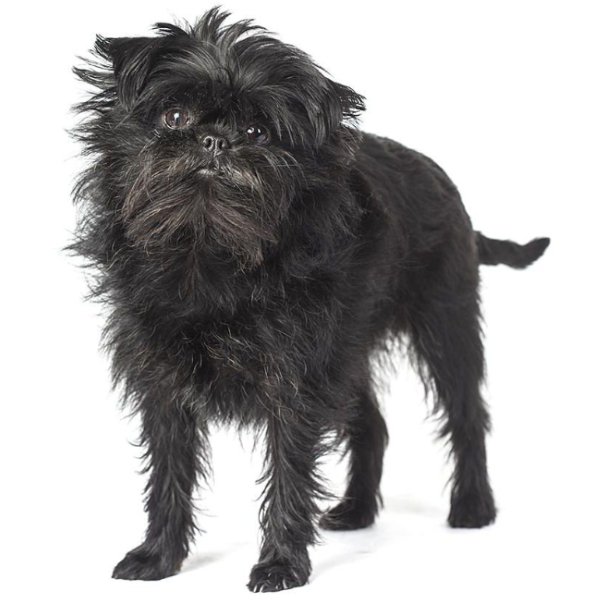

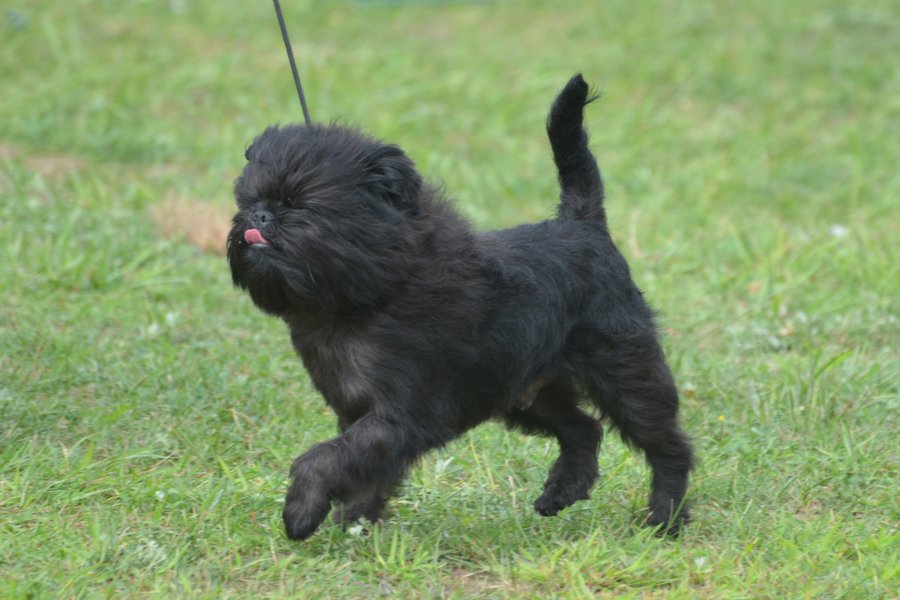


Affenpinschershave appeared in paintings as far back as the 15th century, making them one of the oldest toy breeds in the world. Originally from Germany, their name roughly translates toApe Terrier or Monkey Dog, which could refer to their monkey-like facial features.
They were initially bred to hunt down vermin. It’s thought that a man from Liibeck, Germany, began breeding ratting terriers in the 1600s. During the Plague, these dogs were brought in from the stables to kill mice in household kitchens. Over the years they became incredibly popular in southern Germany because of their impressive skill as ratters.
Affenpinschers were also responsible for creating and developing other breeds like the GriffonBelge, the Griffon Bruxellois, and the Miniature Schnauzer. It is believed that at some point, Affenpinschers came in two sizes; however, the larger one no longer exists today.
By the early 20th century, Schnauzers and Affenpinschers were identified as coming from the same litter. They were only distinguished from each other according to their head shape. In fact, most Miniature Schnauzers today can trace their lineage right back to these first litters.
During the 1950s, the Affenpinscher rose as a popular dog not only in their native home Germany but also in the United States. They were kept as canine companions due to their small size. The Affenpinscher was slower to gain popularity in the UK. In 1987, the dog breed was finally registered with the Kennel Club. In 1982, the Affenpinscher Club was founded. Nowadays, these little monkey-faced dogs are still gaining popularity around the world, thanks to their loyal, comical characters and unique appearance.
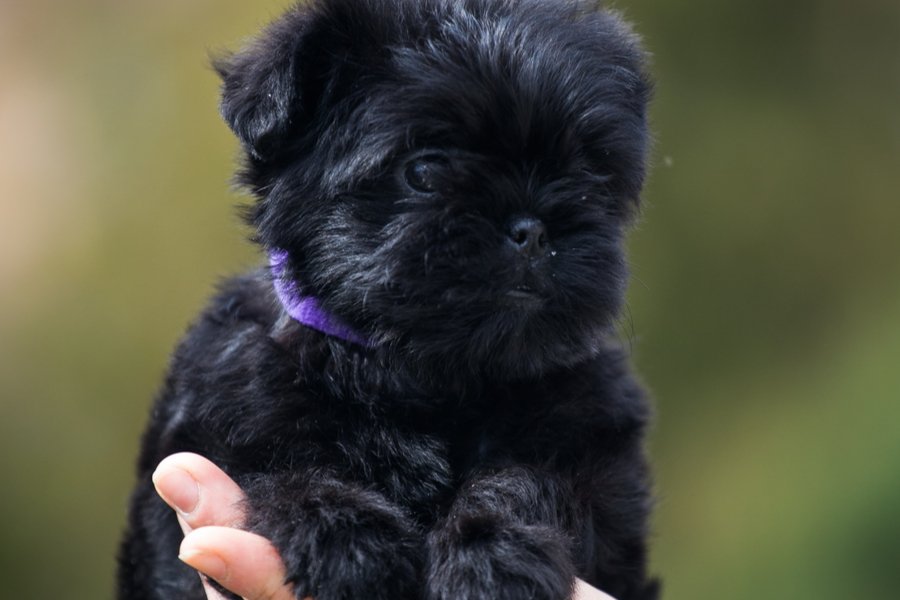
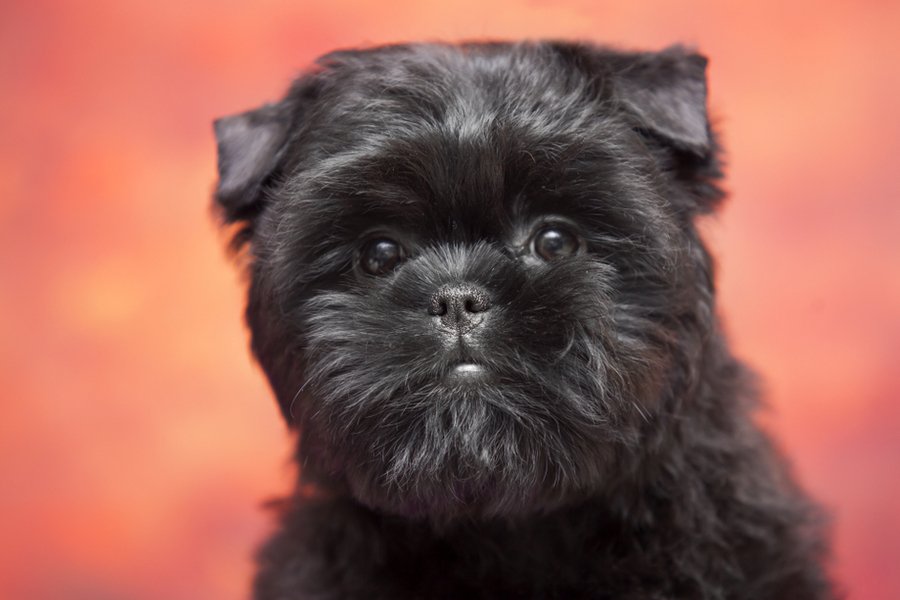
These charming little canines are surprisingly robust and boast a monkey-like face with a wiry and rough coat. They radiate confidence and self-worth.
Their heads are a little small in proportion to the rest of the body. They have a domed forehead with a broad brow and a distinct stop. Their short muzzles are blunt but do not cause any breathing issues. Their chins are prominent, and the nostrils are nicely open.
Their medium-sized eyes are very dark in color and round. They have small ears that are set high on the head, either held upright or down. These sturdy little dogs have a somewhat undershot jaw with a wider lower jaw.
An Affens’ neck is short but straight, with no sign of wrinkling. Their straight front legs are close. They have short, level backs and well-sprung ribs and bellies. These are somewhat tucked up, which contributes to the dog’s compact and solid appearance.
Affenpinschers have strong hindquarters, and their back legs are set well under their bodies. Their round feet are small and compact, boasting dark nails and pads. An Affens’ tail is set high and carried with a slight curve.
The Affenpinscher’s coat is short, rough, dense, and harsh to the touch. The hair is shaggier on some parts of the body, including the head, neck, and shoulders. It also stands away from the face which adds to their monkey-like appearance. Black is the only accepted breed color for the UK Kennel Club. However, these dogs can also have grey shading in their coats.
Affenpinschers are known to have a comical side and a little bit of a mischievous streak. These dogs are incredibly bold and fearless, despite their small, compact appearance. These canines make wonderful lapdogs however, they are also very smart. So, they will appreciate regular games. In addition, these dogs need a couple of short walks a day to keep them fit and healthy. Long walks are not recommended for these dogs because of their short legs.
Affenpinschers boast all of the typical “terrier” traits plus the importance of self-worth. These dogs are playful, affectionate, courageous, and talkative. Affen's can be a bit yappy, especially when they are startled or afraid. However, this can be trained out of them from puppyhood. Furthermore, like all dogs, Affenpinschers need to be socialized from an early age. Otherwise, they can become wary around strangers and new situations.
Remember that these little dogs do not like to be left alone for long periods as they can suffer from separation anxiety. So, they are best suited to homes where someone is around for most of the day.
Affenpinschers are known to have a high prey drive and enjoy chasing anything that tries to run away from them. So, make sure care is taken when your Affen is in close proximity to small animals like rodents, guinea pigs, and even cats.
These dogs are a good choice for novice dog owners because they are responsive and people-oriented, and they love nothing more than to please their human companions. They will happily entertain you and cuddle with you at the end of a long day.
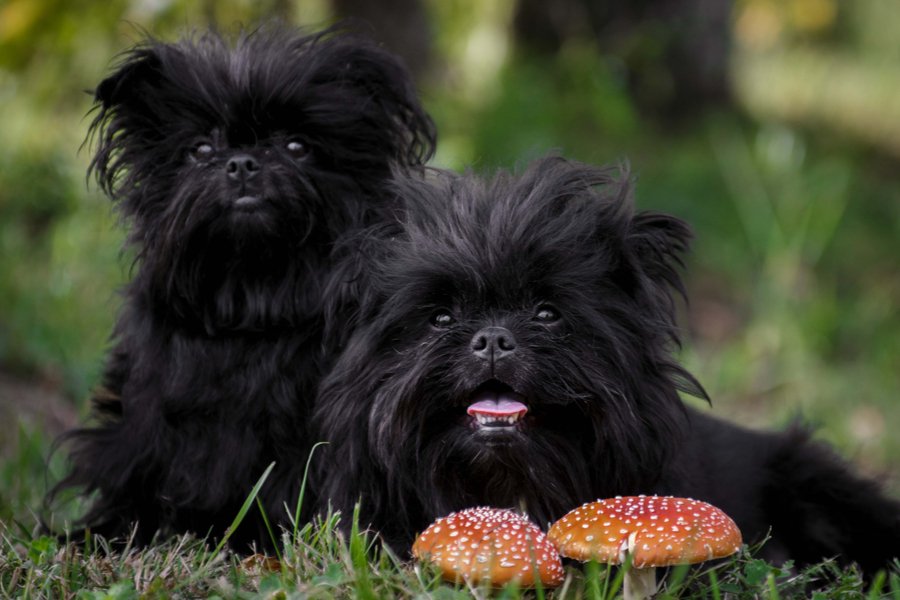
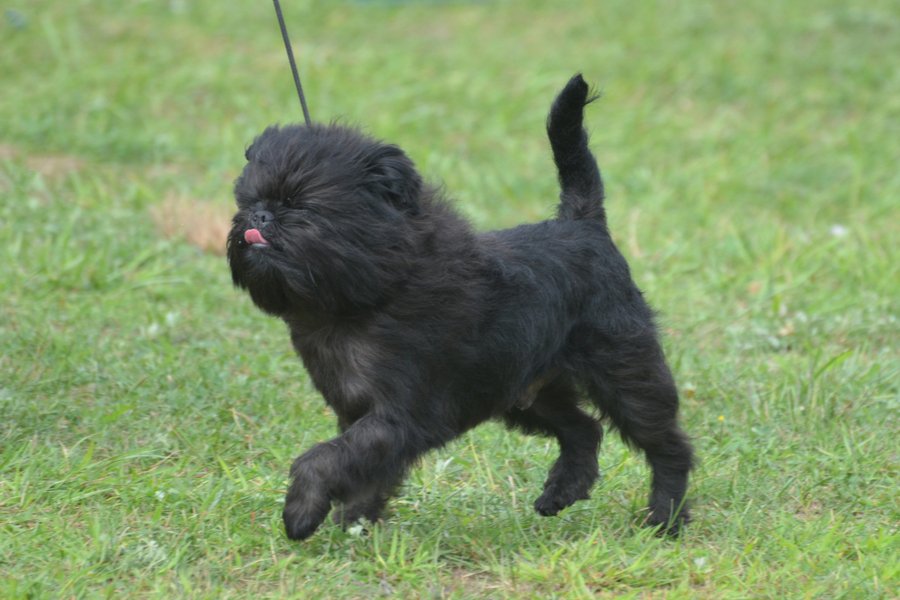
Affenpinschers are intelligent, charming dogs. However, they are also very willful and have a domineering streak that can show itself if the dog is not appropriately trained from a young age. Use positive reinforcement methods from puppyhood to help your dog to understand what is expected of them. Affenpinschers are very attention and food-orientated so use this to your advantage!
You can start their socialization as soon as they are fully vaccinated. Introduce them gradually to new situations, animals, people, and other dogs to ensure they grow up to be well-rounded dogs.
Affenpinscher puppies, like all puppies, are adorable and attention-seeking. So, it can be very easy to spoil them. However, it is not recommended to “baby” them as they grow because this can lead to domineering behaviors, such as ‘small dog syndrome’. These dogs may be cute, but they are also very quick learners. Make sure you remain consistent with training, and you will have a very loving companion who will provide you with years of companionship and laughter.
Due to their coarse, rough coats, frequent grooming is necessary for Affenpinschers. Their grooming routine should consist of regular brushing at least twice a week with a slicker brush and a metal rake comb. However, they will also benefit from occasional trips to a professional groomer for a trim. Affenpinscher coats can benefit from being stripped regularly to prevent mats and tangles.
These dogs are known to shed very little, so they are considered to be hypoallergenic. However, it’s important to note that no dog breed is 100% hypoallergenic. So, it's always a good idea to spend some time around an Affenpinscher before committing to adding one to your family. Remember that allergens can still be present in saliva and dander.
Brush your Affenpinscher’s teeth at least twice a week to remove bacteria and tartar buildup. Daily dental hygiene is still best to prevent tooth and gum disease and bad breath.
Since many dogs cannot wear their nails down naturally, you should trim their nails once or twice a month to prevent any painful tears or splitting. Note that their toenails have blood vessels in them, so if you trim too close to the skin, it can cause painful bleeding. If you are not sure how to properly trim your dog's nails, you can ask your vet or a trusted groomer to give you tips on how to do it properly.
Check your dog’s ears weekly for any signs of infection such as a foul odour or redness. You can wipe out dirt and wax buildup by using a clean cotton ball moistened with a vet-approved, pH-balanced ear cleaner. Make sure to never insert anything into the ear canal because this can cause internal damage.
When grooming your Affenpinscher, make sure to examine the body for sores, rashes, and other signs of infection such as redness, tenderness, and swelling. Your dog’s eyes must be clear without redness or discharge. Lastly, make every grooming session a positive experience for your Affenpinscher. Shower them with praise and reward them for good behavior. This will make further examinations and vet check-ups much easier in the long run.
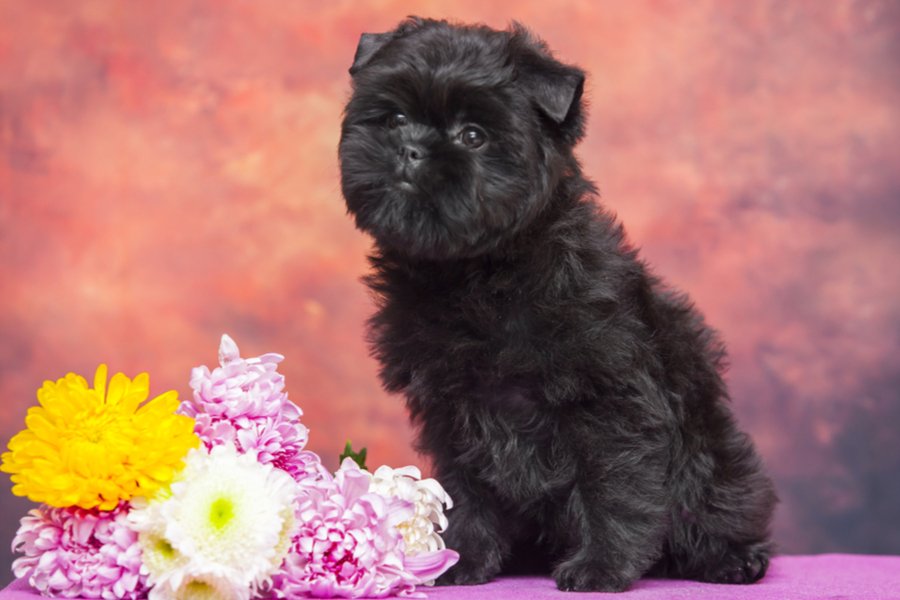
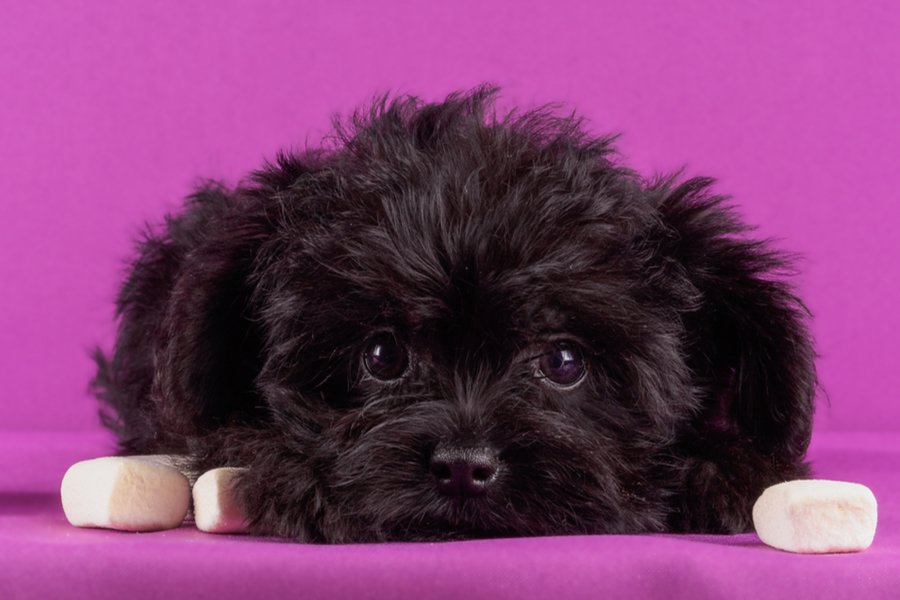
Affenpinschers are a relatively healthy dog breed. Their life expectancy is 12-15 years with proper care, exercise, and a high-quality diet. However, there are certain health conditions that that might be prone to. Always make sure you purchase any puppy from a reputable and licensed breeder to ensure they have been appropriately socialized and weaned. A good breeder will also be able to perform DNA checks to determine if your pup has any underlying health issues.
Some of the more common health issues seen in Affenpinschers include:
Affenpinschers are affectionate and loyal towards their human companions, to the point of being very protective. However, because of their tendency to be wary of strangers and new situations, these charming little dogs may not be the best match for young children and other pets. Make sure you supervise all interactions between an Affenpinscher and a child to prevent any mishandling. Affen’s can easily be injured because of their small size, so always handle them with care.
These little dogs have a natural inclination to hunt vermin. So, they are not suitable for households with small pets such as guinea pigs or gerbils. They may even chase after cats. They generally get along well with other dogs. However, they are completely unaware of their small size. So, they will have no issues taking on a larger dog if they feel the need! OverallAffenpinschers make amazing companions for the right owners, as long as they have been appropriately trained and socialized.
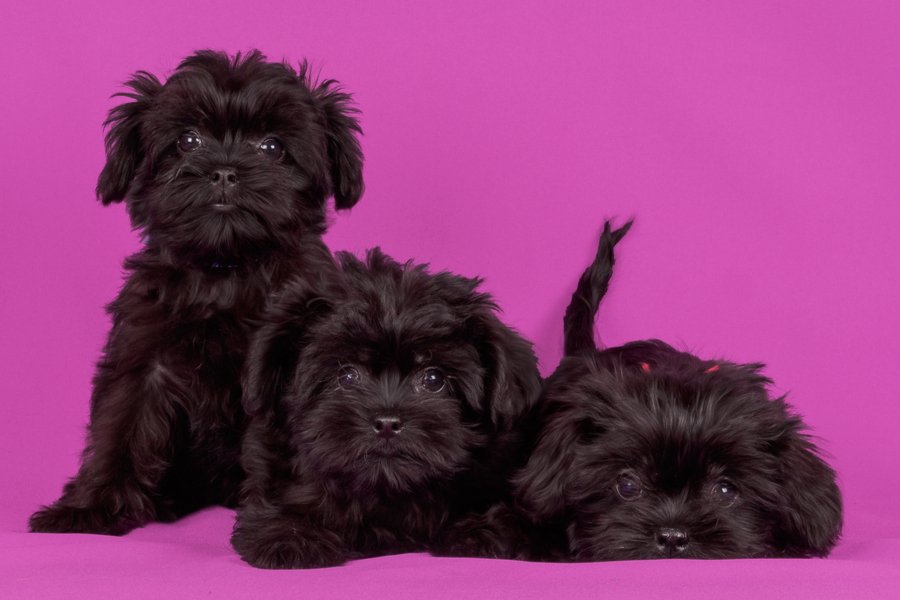
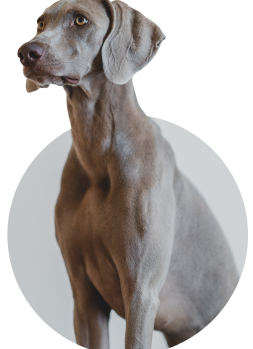
We can connect you with Breeders that are specialized in this particular breed.
See available puppies

Need some advice?
Whether you're a first time pet owner, an experienced pet owner, a new or long-time breeder, or just curious about pets, we've got you covered!
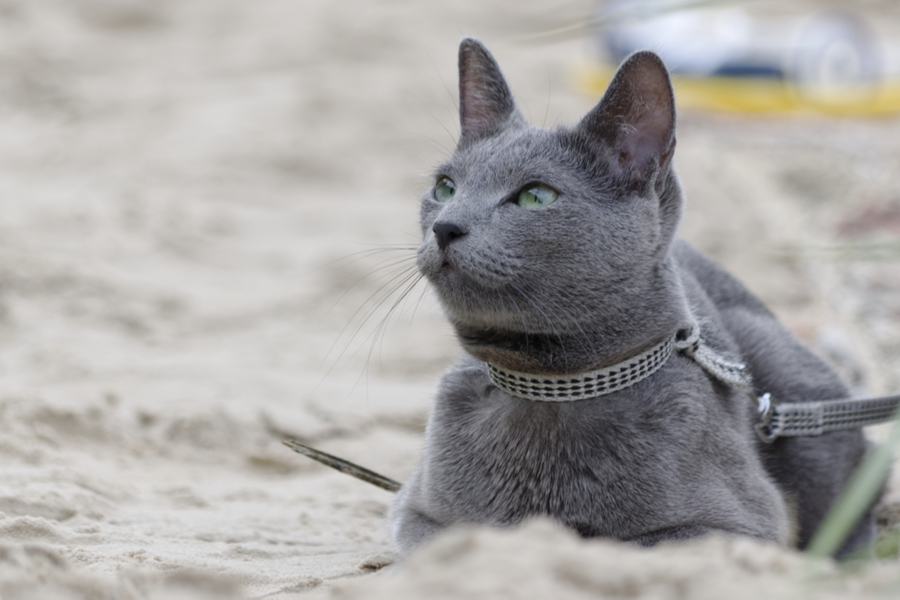
January 17, 2024
What Is The Personality Of Russian Blue Cats?
Russian Blue cats are most known for their distinctive shimmery blue-silver coat and piercing green eyes. However, this breed’s calm and gentle temperament is what makes them shine the most in the feline world.
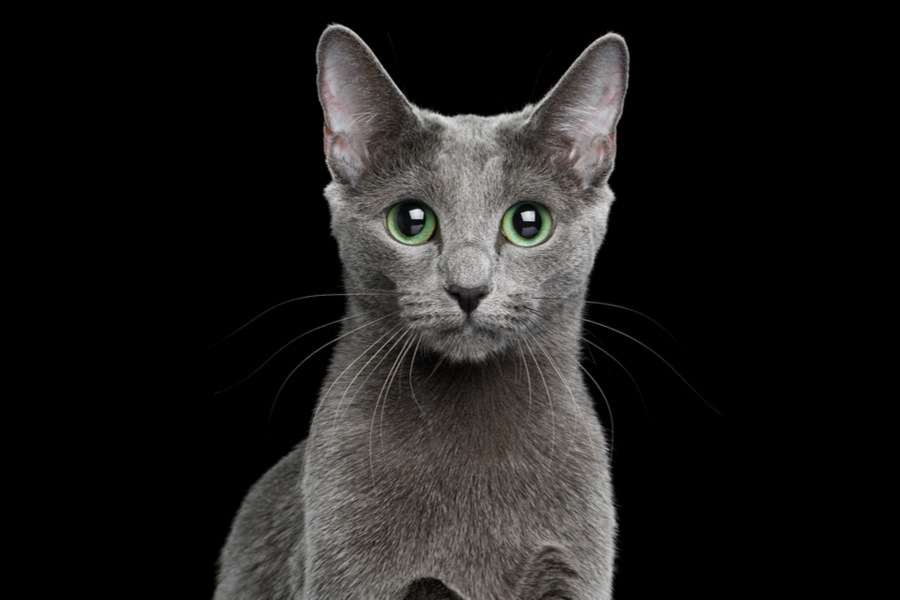
January 17, 2024
10 Facts About Russian Blue Cat Breed
Russian Blues are one of the most aesthetically stunning cat breeds, with a gorgeous plush silvery coat and vibrant green eyes. However, it’s not only their appearance that is beautiful; their nature is too.
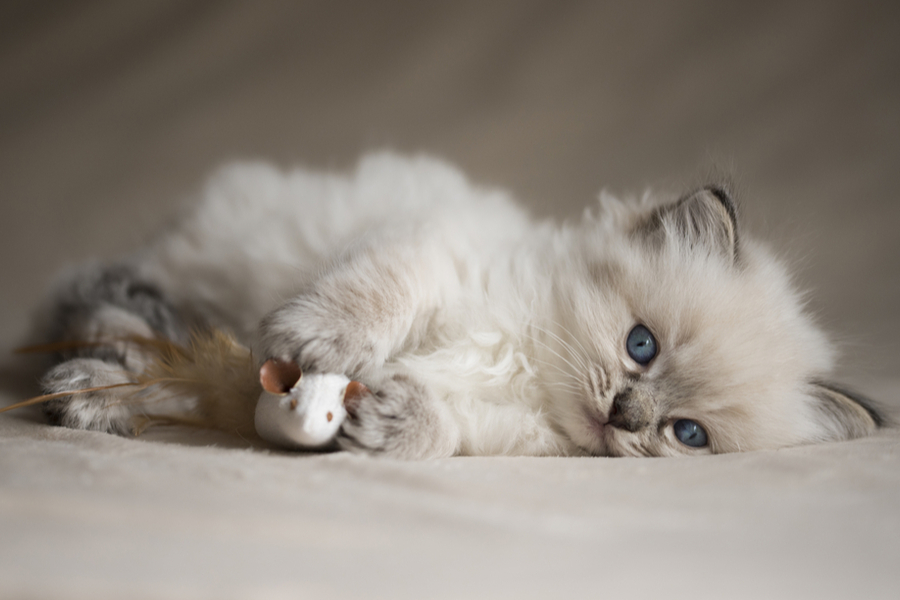
January 17, 2024
How To Choose The Right Cat Breed for You
Cats can make the most fantastic animal companions; they are adorable, friendly, and loving. However, not all felines are created equal. There are many different breeds, of which each has its unique personality traits.
Need some help?
Contact us to speak to our friendly advisor, who will gladly help you find your dream pet!



We are registered in England and Wales under registration number 12568840,
and our registered office is at 58-60 Kensington Church Street, W8 4DB London, England.
© 2023 The Pedigree Paws